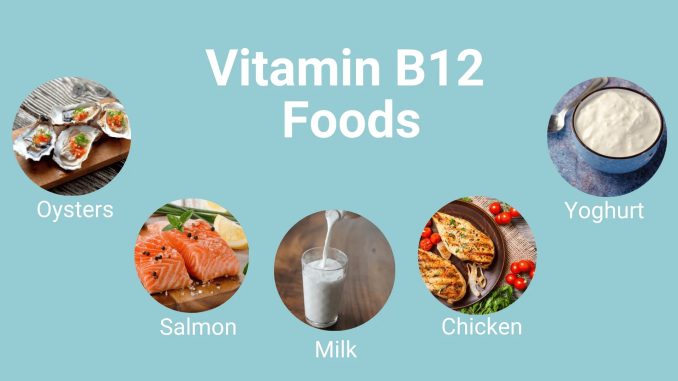
## The Unsung Hero: Unpacking the Importance of Vitamin B12 in Your Diet
In the vast lexicon of essential nutrients, Vitamin B12, or cobalamin, often operates quietly behind the scenes, yet its role in maintaining human health is anything but minor. Far from being a mere footnote in dietary guidelines, this water-soluble vitamin is a veritable powerhouse, intricately involved in some of the body’s most critical functions. Its impact spans from the very genesis of our genetic material to the seamless transmission of nerve impulses, underscoring its indispensable nature for overall well-being. Understanding the profound importance of Vitamin B12 in our diet, and recognizing the signs of its deficiency, is crucial for anyone seeking to optimize their health and prevent a cascade of potentially serious health complications.
At its core, Vitamin B12 is fundamental to the proper functioning and development of the brain and nerve cells. It plays a pivotal role in the synthesis of myelin, the protective sheath that surrounds nerve fibers, allowing for rapid and efficient transmission of electrical signals throughout the nervous system. Without adequate B12, this myelin sheath can degrade, leading to neurological issues that manifest in various ways, from tingling sensations and numbness in the extremities to difficulties with balance and coordination. For individuals whose daily lives depend on sharp cognitive function, such as professionals navigating the fast-paced business environment in Bangkok, a deficiency could subtly yet significantly impair focus, memory, and overall mental acuity, making B12 a silent guardian of cognitive performance.
Beyond neurological health, B12 is absolutely essential for the production of red blood cells. It works in tandem with folate (Vitamin B9) to ensure the proper formation of healthy red blood cells, which are responsible for carrying oxygen from the lungs to every tissue and organ in the body. A deficiency in B12 can lead to a condition known as megaloblastic anemia, where red blood cells become abnormally large and inefficient at carrying oxygen. Symptoms of this anemia include persistent fatigue, weakness, shortness of breath, and pale skin, significantly impacting an individual’s energy levels and overall vitality. Imagine trying to keep up with the demands of a busy urban lifestyle while your cells are starved for oxygen; the profound exhaustion highlights B12’s critical role in energy metabolism.
The importance of Vitamin B12 also extends to DNA synthesis and repair. As the blueprint for all cellular life, DNA must be accurately replicated during cell division and efficiently repaired to prevent mutations. B12 is a crucial co-factor in the metabolic pathways involved in these processes, ensuring the health and integrity of our genetic material. This role makes it vital for rapidly dividing cells, such as those in the bone marrow (where blood cells are made) and the gastrointestinal tract. Its involvement in methylation processes further underscores its significance in various biochemical reactions critical for overall cellular health.
What makes B12 particularly unique among vitamins is its primary dietary source: it is found almost exclusively in animal products. Meat, poultry, fish (especially salmon, tuna, and cod), eggs, and dairy products are rich natural sources of cobalamin. For omnivores, a balanced diet typically provides sufficient B12. However, this poses a significant challenge for vegetarians and, particularly, vegans. Individuals following plant-based diets must therefore be vigilant about obtaining B12 through fortified foods (such as fortified plant milks, breakfast cereals, and nutritional yeast) or, more reliably, through supplementation. Given the critical roles B12 plays, relying solely on unfortified plant foods can quickly lead to deficiency over time, potentially manifesting years after dietary changes.
Beyond dietary choices, certain medical conditions and lifestyle factors can also impair B12 absorption, even for those consuming animal products. Pernicious anemia, an autoimmune condition, prevents the body from producing intrinsic factor, a protein necessary for B12 absorption in the small intestine. Older adults are also at higher risk, as stomach acid production, which aids in B12 release from food, tends to decrease with age. Certain medications, such as proton pump inhibitors (used for acid reflux) and metformin (used for diabetes), can also interfere with B12 absorption. Chronic alcohol consumption and certain gastrointestinal surgeries can similarly compromise absorption, making regular monitoring and potential supplementation crucial for these populations.
Recognizing the symptoms of B12 deficiency is paramount for timely intervention. While fatigue and weakness are common, neurological symptoms like tingling or numbness in the hands and feet, difficulty walking, memory loss, disorientation, and even changes in mood (such as depression or irritability) can signal a severe deficiency. Given the irreversible nature of some neurological damage if left untreated, prompt diagnosis and treatment are essential. A simple blood test can confirm a B12 deficiency, allowing for appropriate supplementation, usually with oral supplements or, in more severe cases, B12 injections.
In conclusion, Vitamin B12 is an unsung hero in the symphony of human health, orchestrating vital processes from nerve function and blood cell formation to DNA synthesis. Its singular dietary source in animal products necessitates careful consideration for vegetarians and vegans, while various medical conditions can impair its absorption even in omnivores. Understanding its critical importance and recognizing the subtle signs of deficiency empowers individuals to take proactive steps, through diet or supplementation, to ensure adequate levels of this indispensable nutrient, thereby safeguarding their neurological health, boosting energy, and supporting overall well-being for a vibrant life.